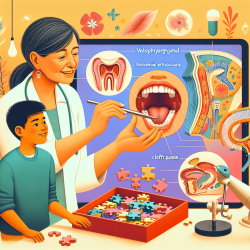Introduction
The COVID-19 pandemic has significantly disrupted healthcare systems worldwide, particularly impacting cancer care delivery. A recent qualitative study titled "I have cancer during COVID; that’s a special category," explores the experiences of patients with locally advanced head and neck cancer (LA-HNC) and their healthcare providers during this challenging period. This blog post aims to help practitioners enhance their skills by implementing the findings of this research or encouraging further exploration in this area.
Key Findings and Themes
The study identified four main themes that characterized the experiences of LA-HNC patients and providers during the pandemic:
- Increased Psychological Distress: Patients experienced heightened anxiety due to their immunocompromised status and the risk of contracting COVID-19. This stress was compounded by the challenges of undergoing cancer treatment during a global health crisis.
- Exacerbated Social Isolation: Social distancing measures and visitor restrictions in healthcare settings intensified feelings of loneliness among patients, affecting their overall well-being and recovery.
- Added Stress in Clinic for Patients and Providers: The inability to have caregivers accompany patients during appointments added emotional and logistical burdens, impacting the quality of care and communication.
- Delays in Healthcare: Fear of COVID-19 exposure led some patients to delay seeking care, potentially worsening their health outcomes.
Implementing Research Outcomes
Practitioners can improve their skills and patient care by integrating the following strategies based on the study's findings:
- Enhanced Communication: Use telehealth platforms and virtual communication tools to involve caregivers in appointments, ensuring patients have support and can better retain information.
- Psychological Support: Routinely screen patients for distress and provide referrals to mental health resources to address anxiety and depression exacerbated by the pandemic.
- Social Support Interventions: Develop programs that facilitate social interaction and support for isolated patients, such as virtual support groups or buddy systems.
- Timely Care Access: Encourage patients to prioritize necessary medical appointments and treatments, emphasizing the importance of timely cancer care despite pandemic-related fears.
Encouraging Further Research
While this study provides valuable insights, further research is needed to explore the long-term effects of the COVID-19 pandemic on LA-HNC patients and to develop comprehensive interventions that address the multifaceted challenges identified. Practitioners are encouraged to contribute to this ongoing research effort, ensuring that future healthcare delivery is more resilient and patient-centered.
To read the original research paper, please follow this link: "I have cancer during COVID; that’s a special category": a qualitative study of head and neck cancer patient and provider experiences during the COVID-19 pandemic.










